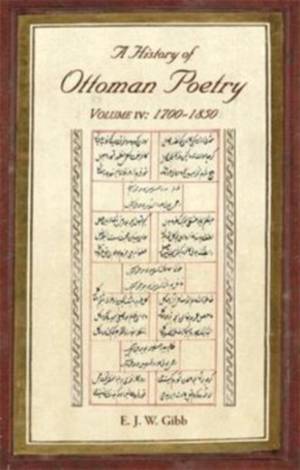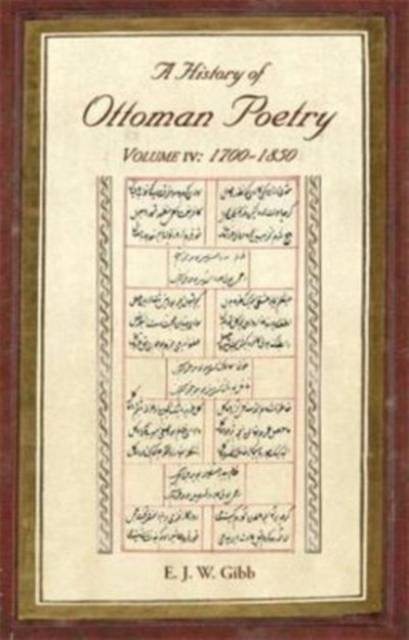
- Retrait gratuit dans votre magasin Club
- 7.000.000 titres dans notre catalogue
- Payer en toute sécurité
- Toujours un magasin près de chez vous
- Retrait gratuit dans votre magasin Club
- 7.000.0000 titres dans notre catalogue
- Payer en toute sécurité
- Toujours un magasin près de chez vous
Description
The History of Ottoman Poetry, first published in six volumes between 1900 and 1909, was the principal product of E.J.W. Gibb's devotion to Ottoman Turkish literature. By the time of his early death in 1901 only the first volume had appeared in print. The remainder was almost complete and was seen through the press by Gibb's friend and literary executor, the Persian scholar E. G. Browne. The History was designed to provide the first extended account in English of Ottoman literature. The first four volumes cover four developmental phases, largely under the influence of Persian literature, from around 1300 to the middle of the nineteenth century. The fifth volume introduces the 'New School' of Ottoman poetry produced in Gibb's own era and inspired by French models. The sixth volume contains in Ottoman printed script the texts of all works quoted in English translation in the previous volumes. No comparable study has appeared in English since Gibb's magnum opus. His History of Ottoman Poetry has become a classic work which is still widely referred to and valuable for students, scholars and anyone with a general interest in Middle Eastern literature and culture.
Volume IV (originally published 1905) covers Ottoman poets of the eighteenth and early nineteenth centuries, a period regarded by Gibb as one of transition between the classical age of the sixteenth and seventeenth centuries, and that of the modern school beginning around 1860. Persian influences upon Ottoman verse began to give way to more Turkish styles, the Ottomans having grown weary of being, according to Gibb, 'the parrots of the Persians'. The two trends nevertheless continued side by side for some time, a contest between the new, more sprightly Romanticism, glowing 'with a brightness of local colour', as represented by Nedim (d. 1730), Sheykh Ghalib (d. 1799), and Sunbulzade Vehbi (d. 1809), and the remaining Persianist tradition exemplified by the poetry of the grand vezir Mehmed Raghib Pasha (d. 1763).
Volume IV (originally published 1905) covers Ottoman poets of the eighteenth and early nineteenth centuries, a period regarded by Gibb as one of transition between the classical age of the sixteenth and seventeenth centuries, and that of the modern school beginning around 1860. Persian influences upon Ottoman verse began to give way to more Turkish styles, the Ottomans having grown weary of being, according to Gibb, 'the parrots of the Persians'. The two trends nevertheless continued side by side for some time, a contest between the new, more sprightly Romanticism, glowing 'with a brightness of local colour', as represented by Nedim (d. 1730), Sheykh Ghalib (d. 1799), and Sunbulzade Vehbi (d. 1809), and the remaining Persianist tradition exemplified by the poetry of the grand vezir Mehmed Raghib Pasha (d. 1763).
Spécifications
Parties prenantes
- Auteur(s) :
- Editeur:
Contenu
- Nombre de pages :
- 376
- Langue:
- Anglais
- Collection :
Caractéristiques
- EAN:
- 9780718903978
- Date de parution :
- 31-01-05
- Format:
- Livre relié
- Format numérique:
- Genaaid
- Dimensions :
- 158 mm x 235 mm
- Poids :
- 857 g

Les avis
Nous publions uniquement les avis qui respectent les conditions requises. Consultez nos conditions pour les avis.






